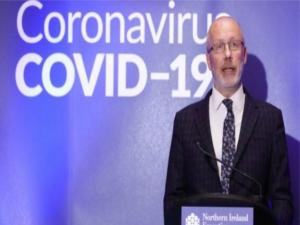
By David Young, PA
Stormont’s chief scientist has defended the evidence base that guided ministerial decisions to close down sections of Northern Ireland’s economy.
The closure of a range of businesses has been questioned after it emerged ministers were advised the move would have a low to moderate impact on infection rates but a high economic impact on workers.
The scientific paper estimated the closure of hairdressers and beauticians could reduce the virus’s reproduction number (R number) by 0.05. while the closure of pubs and restaurants could decrease R by between 0.1 to 0.2.
The release of the data has been met by an angry response from some business owners who have been forced to close.
Chief scientific adviser Professor Ian Young said the numbers might appear small but such incremental reductions could make an “enormous difference”.
When R is above one the prevalence of the virus will continue to increase; when it falls below one, Covid-19 rates will begin to fall.
Prof Young highlighted that R is currently around 1.4 in Northern Ireland and the aim of the current four-week circuit-break is to reduce the number by 0.5, to below one. In that context, 0.05 is 10% of the R reduction ministers are trying to achieve and 0.2 is 40%.
He said: “Even these small numbers, particularly when R is close to one, can have an enormous difference.
“We need for this period all of the levers that we can get to achieve the impact that we need.”
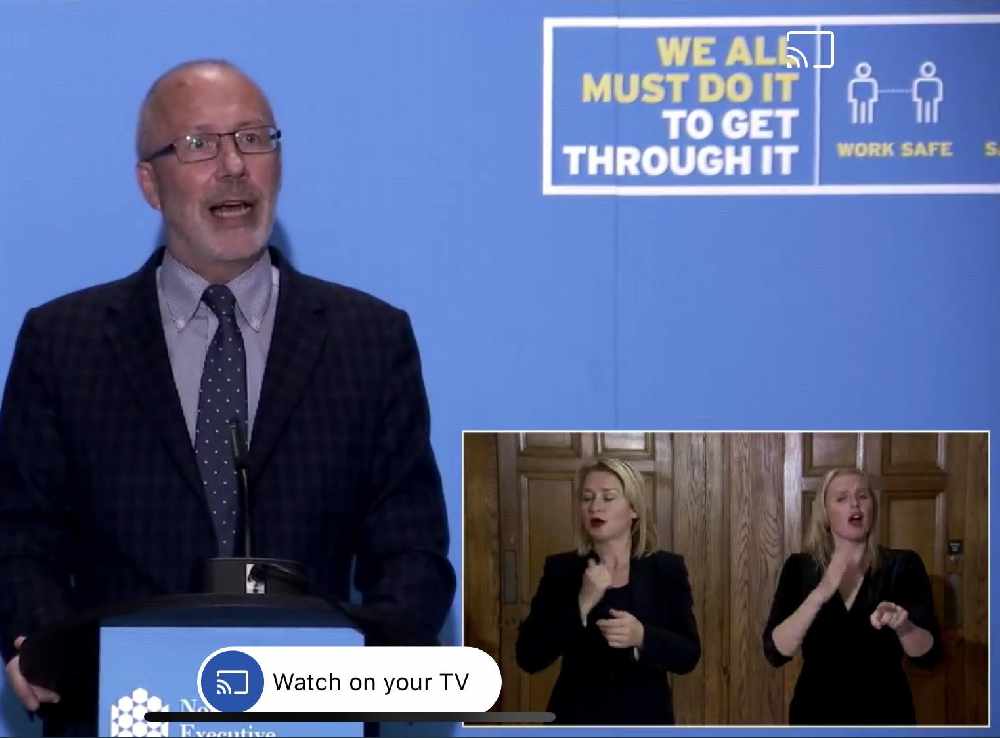
Pictured:Professor Ian Young
The data is contained in a scientific paper that guided the Executive’s recent decisions on the introduction of the circuit-break.
The paper, which is a summary of advice drawn up by the Scientific Advisory Group for Emergencies (Sage), was published on Tuesday evening as part of an initiative by the Department of Health to increase transparency around the decision-making process.
The paper listed a range of actions available to ministers, setting out the impact of each both on transmission rates and on wider society.
Last week, close contact services such as hairdressers and beauticians were among a range of businesses required to close until November 13.
While the Executive paper said closing close contact services would have a low impact on Covid-19 transmission – potential reduction in R by 0.05 – it said it would have a high social and economic impact, warning it would disproportionately affect low-income workers and women.
Belfast hairdresser Sean Lawlor, who owns the Cambridge Barbershop in the city, said the reaction to the scientific paper within his industry was “gut wrenching” and “anger”.
“My message to our leaders is – why did you shut us down when you had this evidence?” he told the PA news agency.
Other steps that would have had a greater projected impact on R – such as the closure of churches (estimated reduction of R of 0.1) – were not taken by the Executive.
The paper’s advice that the current closure of bars, pubs, cafes and restaurants is likely to have a “moderate impact” – reducing R by between 0.1 and 0.2 – referenced multiple “anecdotal reports” of outbreaks linked to bars in the UK and beyond.
The paper said a curfew, which ministers introduced last month, is likely to have a “marginal impact”.
In terms of the non-Covid impact, the paper again warned of a high impact caused by a loss of income for hospitality workers.
Simon Hamilton, chief executive of business representative body Belfast Chamber, branded the evidence “flimsy” and said the paper poses “massive questions” for the Executive.
He tweeted: “Why did ministers close hospitality and close contact retail when they knew it would have such a low impact on the R number, a high impact (on) incomes and a disproportionate effect on the poor and women?”
Mr Hamilton, a former DUP health and economy minister in the Executive, described the evidence published on Tuesday as “absolutely shocking”.
In an interview with BBC Radio Ulster, he added: “I would be ashamed of presenting this evidence to anybody and I think I would be more ashamed to take any decisions on the back of it.”
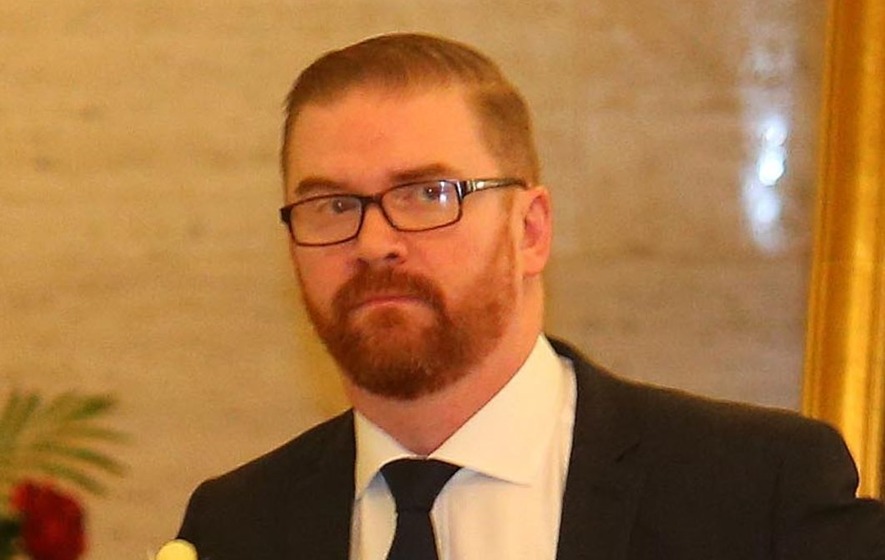
Pictured: Simon Hamilton
The Executive paper is part of a bank of evidence data published by the Department of Health.
Prof Young said it is important not to solely focus on the Executive advice paper.
He told Radio Ulster: “It’s a summary document and it’s not particularly helpful to consider that in isolation and I hope that people will look at the broader evidence that we are making available.”
On the closure of pubs and restaurants, Prof Young said: “We need to get it (R) down by 0.5, it sounds like a small number but 0.2 – and may be more than that for pubs and restaurants – is 40% of the way and we don’t have a lot of levers left to pull, so every little bit that we can get is going to play a role in making sure that R is less than one rather than over one.”
On the estimated impact on R of closing close contact services, the chief scientific adviser added: “0.05 doesn’t sound like much, but if we end up with an R of 0.98 then cases will decline and pressure on hospitals will reduce.
“If R is 1.03 – just 0.05 higher – cases will continue to increase and expand and the impact of that over the course of a few weeks would be a couple of hundred cases.”
The Executive paper said the closure of all schools would have a “moderate impact” on R, reducing it by between 0.2 and 0.5.
It said the non-Covid impact would be high due to the disruption to young people’s education.
Schools are currently closed for two weeks after the mid-term Halloween break was extended by a week.
The paper said the move that would have the greatest impact on transmission would be the reintroduction of a stay-at-home order similar to the first lockdown.
It said that move had been shown to reduce R from 2.7 to 0.6 during the first lockdown.
The evidence bank includes multiple reports from Sage, weekly papers on the R number in Northern Ireland and a variety of other expert assessments.


 Swann refuses to rule out resigning if budget is not changed
Swann refuses to rule out resigning if budget is not changed
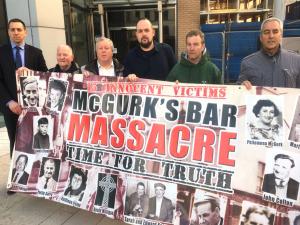 Fresh inquests ordered into deaths of 15 killed in McGurk’s bomb blast
Fresh inquests ordered into deaths of 15 killed in McGurk’s bomb blast
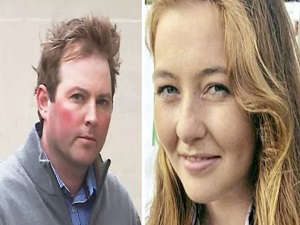 Trial ends after man accused of murder of young showjumper is found dead
Trial ends after man accused of murder of young showjumper is found dead
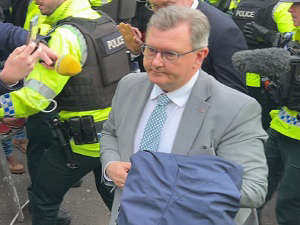 A brief hearing and chaotic scenes as Donaldson makes first court appearance
A brief hearing and chaotic scenes as Donaldson makes first court appearance